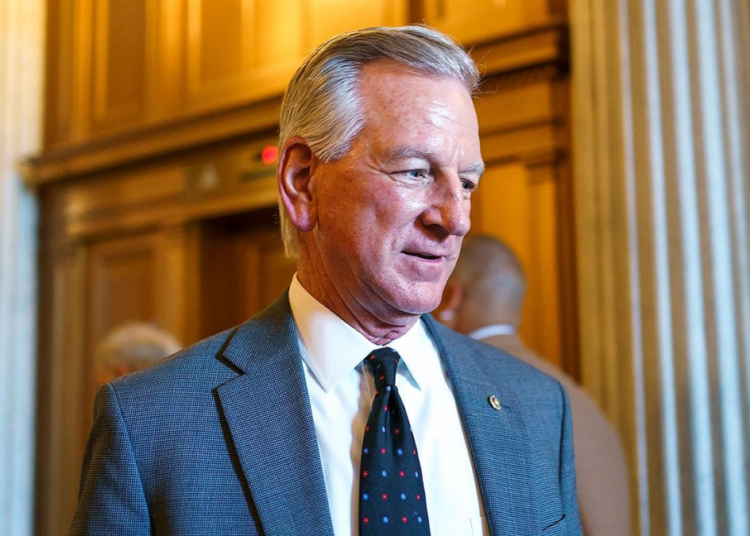President Joe Biden has attacked Senator Tommy Tuberville for blocking over 200 military nominees due to the Pentagon’s new policy of funding abortions. The Department of Defense policy requires taxpayers to finance travel costs and paid time off for military service members and their families to obtain abortions. This move is estimated to result in around 4,100 more abortions each year, partly funded by taxpayers. Biden referred to Tuberville’s opposition to taxpayer-funded abortions as “bizarre” during a fundraising event in Silicon Valley.
White House press secretary Karine Jean-Pierre also condemned Tuberville’s hold on the nominations, stating that it is “hurting our national security” and describing it as “dangerous” and “unacceptable.” However, the responsibility for the impasse lies with the Pentagon and the Biden administration, as Tuberville has made it clear that he will lift the hold as soon as the abortion funding policy is withdrawn. Additionally, the Senate could vote on nominees individually, but Democrats have chosen not to vote on any nominees, and the Biden administration has refused to withdraw the policy.
The Biden administration has proposed a committee vote on a bill to overturn the Pentagon’s abortion funding policy in exchange for Tuberville allowing votes on its nominees. However, Tuberville understands that this bill would likely be defeated in a Democrat-controlled committee and subsequently filibustered on the Senate floor, rendering it unlikely to become law. Hence, he sees no reason to relinquish his leverage without any guarantees in return.
Tuberville blames the Biden administration and Defense Secretary Lloyd Austin for prioritizing their pro-abortion politics over military promotions. He argues that the new pro-abortion policy violates Title 10 Section 1093 of the U.S. Code, which prohibits the use of Department of Defense funds for abortions except in cases where the life of the mother is at risk or if the pregnancy resulted from rape or incest.
Tuberville’s actions do not entirely block nominees; they simply prevent the Senate from voting on long lists of nominees at once, necessitating individual votes, which takes more time. Polls consistently show that a majority of Americans oppose using taxpayer money to fund abortions, both domestically and internationally. Traditionally, bans on taxpayer funding for elective abortions enjoyed bipartisan support in Congress, but Democratic leaders have recently shifted their position to support taxpayer-funded abortions, aligning with the goals of the abortion industry.




















Discussion about this post